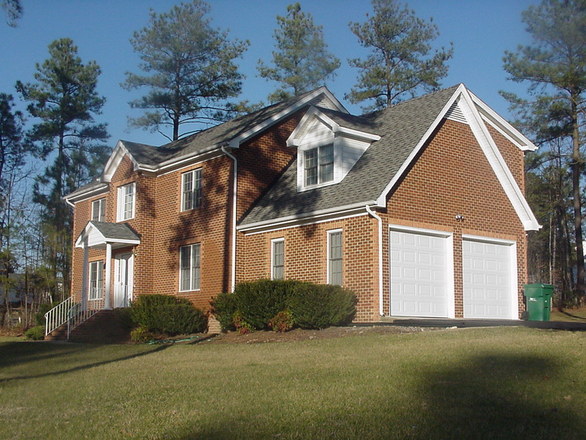Owning rental property opens up new opportunities for passive income, building wealth, and even picking up some unexpected life lessons along the way. Whether to hire a property manager or handle things on your own is a question that trips up plenty of both new and experienced investors. Sometimes handling all the details feels doable, but there are moments when bringing in help simply makes sense.
How Property Management Works
Property managers take on the daily business involved in owning rental properties. Their list of tasks stretches from marketing and leasing all the way through maintenance and settling tenant disputes. Instead of managing middle-of-the-night calls about leaky faucets or chasing down late rent, you can step back while someone else fields the headaches for you.
Property managers usually work for a fee or a percentage of the rent. Some owners see this as just another business cost; others view it as an investment in time, peace of mind, and keeping tenants happy so the property runs smoothly. Property managers also have hands-on industry knowledge about areas like local landlord and tenant laws, which keeps you out of trouble and helps with compliance.
When to Consider Hiring a Property Manager

- You don’t live near your rental property: Handling emergencies, showing units, or scheduling maintenance gets tricky from far away. If going to the property means a long drive or even a flight, the effort quickly outweighs the benefits.
- The process eats into your free time: Rental properties can feel like a second job. If late-night calls or endless paperwork have you feeling overwhelmed, it might be time to carve out more space for yourself.
- Struggles with finding quality tenants: Screening applicants is tough, and a high vacancy rate is expensive. Good property managers bring more effective ways to bring in reliable tenants and keep your units full.
- Maintenance feels overwhelming: Juggling emergency repairs, routine checks, and lining up vendors can eat up your personal time—or interfere with other work. If it’s hard to keep up, handing this off brings great relief.
- You own multiple units or properties: A single rental might be manageable, but scaling up gets complicated fast. Larger portfolios benefit from systems and resources a property manager brings.
- You want the investment to be as hands-off as possible: If you prefer letting your real estate investment work in the background, property managers step up to do the work for you.
Benefits of Self-Managing Rental Property
- Potentially lower costs: Skipping management fees lets you keep more cash each month. That extra profit appeals especially to budget-conscious investors or those just starting out.
- Complete control: You make all the decisions about tenants, repairs, renovations, and policies. It gives you a hands-on look at all aspects of your investment.
- Stronger tenant relationships: Managing personally makes it easier to build rapport and encourage tenants to respect your property. This comes in handy for communication, retaining tenants, and even getting referrals when a unit opens up.
- Firsthand experience: Handling daily details on your own delivers valuable insights into what works—and what doesn’t. That kind of practical knowledge will serve you well as your rental business grows.
This approach often makes sense for those with just one or a handful of properties, some spare time, or a desire to learn as they go. Testing things out with your first rental helps you figure out what you enjoy and what you’d rather pass off.
How to Decide Which Choice is Right for You
Deciding between hiring a property manager or doing things yourself really boils down to a few key points: where you live, how much time you have, the number of units, your budget, and how much stress you’re willing to take on. Thinking through these areas in your situation will give you the clearest answer.
Ask Yourself:
- Can I get to my rental quickly if something goes wrong? Do I have the time to respond to issues fast?
- Am I up for handling rent collection, repairs, marketing, accounting, and legal challenges—or am I ready to learn the ropes?
- Do I want or need the investment income to feel as passive as possible?
- Am I comfortable giving up a slice of my rental income if it means freeing up time?
- Are any savings from self-managing important enough to be worth the time and effort I’ll need to put in?
If you feel buried in rental headaches or find that managing your property turns into more of a chore than steady income, paying for professional help might be well worth it. But for those who like being hands-on or need to keep their budget tight, self-managing has its upsides.
Challenges (and Solutions) With Each Approach
Hiring a Property Manager
- Expense: Management fees often come in between 8% and 12% of your Gross monthly rent. Some property managers ask for extra payments for placing tenants or arranging repairs. For properties with slim margins, this might be a dealbreaker.
- Finding a reliable partner: Not all property management companies provide the same service quality. Take time to read reviews, check with other landlords, and ask specific questions about their processes.
- Less control day-to-day: Passing jobs off means you won’t have the final say in every detail. Good communication is crucial for smooth operations and avoiding surprises with tenants or maintenance.
Self-Managing Rentals

- Time commitment: When you self-manage, everything falls on your shoulders—from late-night repair calls to following up on missed payments. Preparation and staying organized are extremely helpful, but the workload is real.
- Lack of industry know-how: If you’re new to rental property, navigating legal rules can be tricky. Online courses, landlord associations, and books are excellent resources to fill in knowledge gaps.
- Tenant relationships: Getting too close (or too distant) with tenants can blur boundaries and create stress. Setting expectations and sticking to lease agreements keeps things on track.
Tips for Success, Whatever Path You Pick
Whether you hire a manager or run your properties solo, the following tips help keep things smooth:
- Use property management software: Platforms like Buildium, AppFolio, or even simple spreadsheets help with everything from collecting rent to tracking maintenance issues. As your business grows, automating tasks makes a big difference.
- Keep thorough records: Good documentation matters if a dispute pops up, you want to refinance, or lenders ask for income proof. Save lease agreements, receipts, and maintenance logs digitally for easy access.
- Stay up-to-date on laws: Landlord and tenant regulations can change, so it’s wise to join your local housing newsletter, participate in landlord groups, or talk to legal experts. This helps you avoid mistakes early on.
- Communicate openly and frequently: Fast, clear communication builds trust with tenants and property managers. Even casual check-in emails boost tenant retention and keep operations running well.
Frequently Asked Questions
Do you have to hire a property manager for rental property?
No, it’s not required. Many landlords handle it themselves, especially if they own just one or two properties. A property manager can be great if you want minimal hands-on involvement or if the workload becomes overwhelming.
What’s a typical property management fee?
Most property management companies charge between 8 and 12 percent of your gross monthly rent. Some have bonus fees for tenant placement or managing repairs. Go through the contract and ask about any and all charges before signing.
When is the right time to stop self-managing?
If landlord duties get too stressful, your portfolio is expanding, or personal obligations keep piling up, consider hiring a property manager to keep your rentals running smoothly.
How do I find a good property management company?
Ask local landlords, check online reviews, and interview candidates about their process, experience, and how they handle evictions and emergencies. Always check references before making your final choice.
Final Thoughts

Choosing to hire a property manager or handle rentals yourself is a personal call. Everybody’s goals, available time, and appetite for risk vary. Sizing up your situation honestly helps you decide what fits best. If your aim is steady income without the stress, hiring a property manager is often the best way to go. If you want to maximize profits and learn every part of real estate, self-management might be worth the effort. Either way, planning ahead and using good resources makes real estate investing more rewarding—and a whole lot less stressful.

